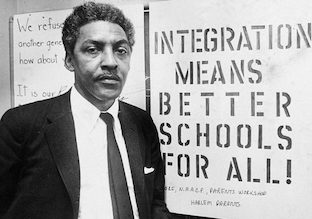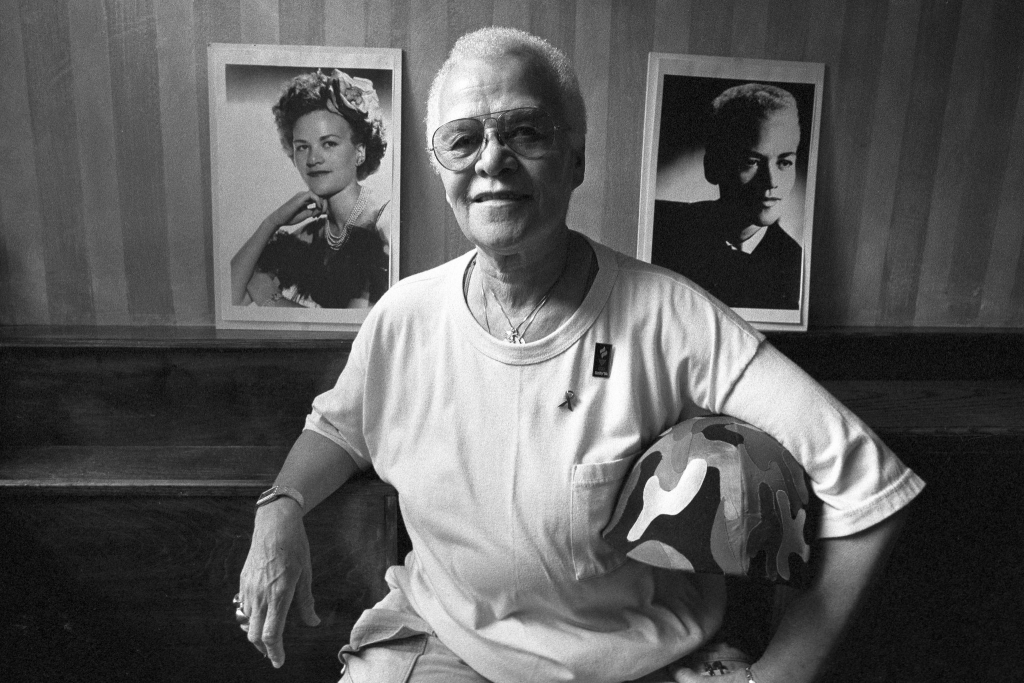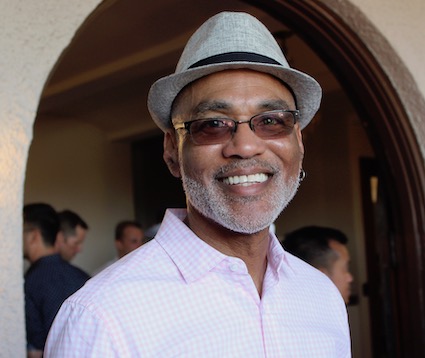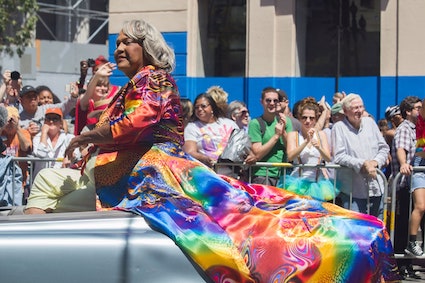5 black LGBTQ activists that shaped the civil rights movement
Intersectionality has always played a huge part in driving the LGBT and black movement forward, finding community and solidarity in belonging to a minority group. With racial and sexual discrimination being most prominent in the 1960s-80s, with it came many inspirational activists advocating for justice and equality. To celebrate Pride month, we remember just a handful of black activists that progressed the LGBT+ and civil rights movement.
Bayard Rustin
Born in 1912, Bayard Rustin was best known for his work as advisor to Martin Luther King JR through the 1950s and 1960s. His fight for equality involved early civil rights protests and being heavily involved in pacifist groups, while continuing to be Martin Luther King JR’s key advisor. Rustin also served on many humanitarian missions, including aiding refugees from Communist Vietnam and Cambodia. Despite being arrested multiple times for his open homosexuality and civil disobedience at the time, he continued fighting for equality and civil rights until his death in 1987.

Stormé DeLarverie
Gay rights activist and drag performer, Stormé DeLarverie, was affectionately nicknamed the ‘guardian of lesbians in the village’, due to her job as a bouncer for several lesbian bars in New York City in the 1980s and 90s. She also became known as the ‘Rosa Parks of Stonewall’, due to her help inciting the historic 1969 rebellion. After the 1990s, DeLarverie also became a board member of the Stonewall Veterans’ Association and was an annual fixture at New York’s annual Gay Pride Parade.

Ernestine Eckstein
Hailed as one of the most progressive thinkers of her time, her activism for the gay and lesbian political movement and Black Feminist movement contributed heavily to the success of future civil rights. Her ideas regarding inclusion across identities and grasp of political coalition work was far more complex than that of her fellow (mostly white) activists and LGBT people at the time. Eckstein claimed that demonstrations were “one of the very first steps towards changing society”, and in acting upon those beliefs, lent valuable experience on public protest to the lesbian and gay movement during the 1960s and 70s.

Phill Wilson
One of the leading activists for AIDS in African-Americans, Phill Wilson founded the Black AIDS Institute in 1999 and served as it’s CEO. During the crisis, Wilson found it necessary to create an institution that focused exclusively on stopping the pandemic in black communities. The institute conducts trainings, offers accurate information and provides advocacy mobilisation to help prevent and control the disease for vulnerable black people. As one of his most recent achievements, in 2010, Wilson became appointed to President Obama’s Advisory Council on HIV/AIDS. Although still continuing his career to advocate for black people against AIDS, Wilson has said that when he dies, he hopes people will remember him for not giving up.

Miss Major Griffin-Gracy
Black, trans woman Miss Major, was one of the pioneering activists to emerge from the pivotal Stonewall Riots in 1969. Her goal was to advocate for her fellow trans family and sisters and provide liberation for black and LGBT communities. Her activism was fuelled by her experiences with homelessness and incarceration, where she learnt the true horrors of the prison system. In 2005 she joined the Trans Gender Variant and Intersex Justice Project and later became it’s executive director, leading the group’s efforts advocating for incarnated trans women. It is Miss Major’s firm beliefs that the prison system often targets transgender individuals, particularly those of colour and of low incomes, and was committed to spread her message of injustice and activism. Despite her retirement in 2015, Miss Major’s fire continues to burn and is still a passionate figure in fighting for justice for those wrongly convicted due to racial profiling and transphobia.
